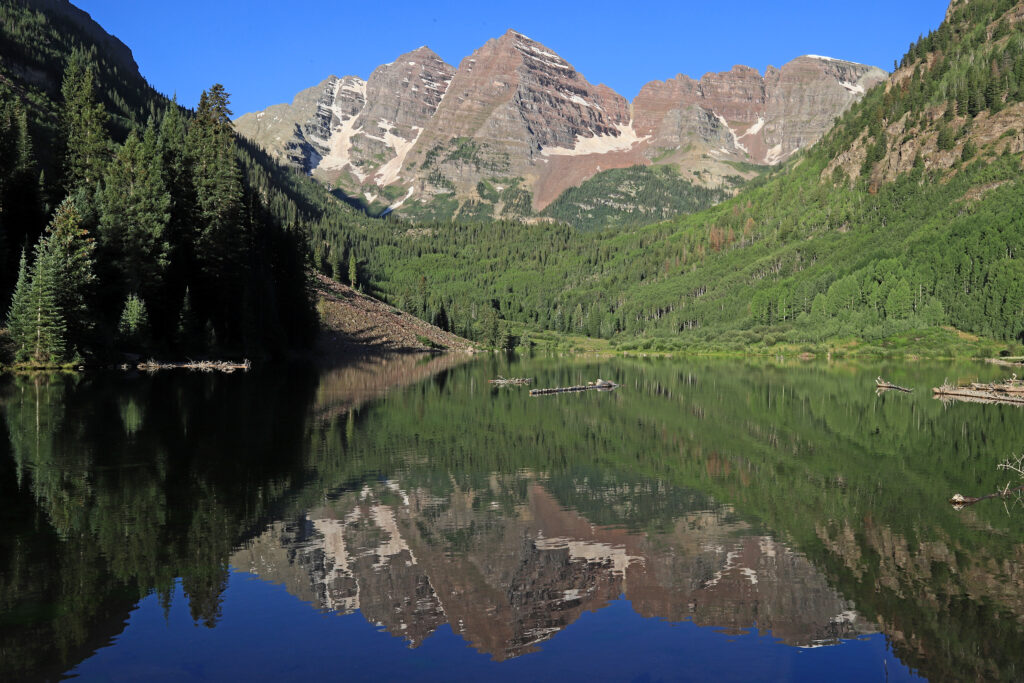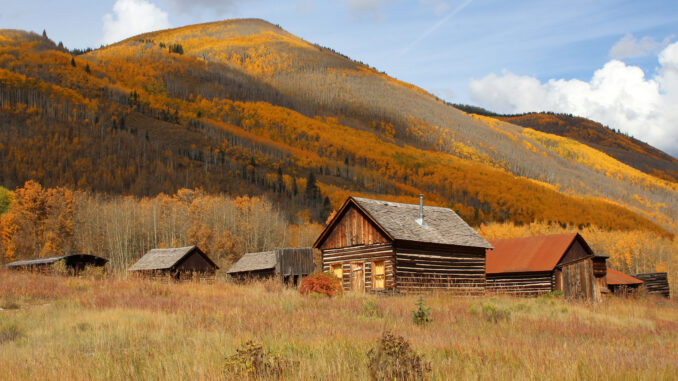
Tucked away in Castle Creek Valley, just eleven miles from Aspen, Ashcroft Ghost Town is one of Colorado’s most photogenic historic sites. With weathered cabins, sweeping mountain vistas, and dramatic seasonal beauty, the town feels frozen in time, offering photographers a rare chance to blend history and landscape in every frame.
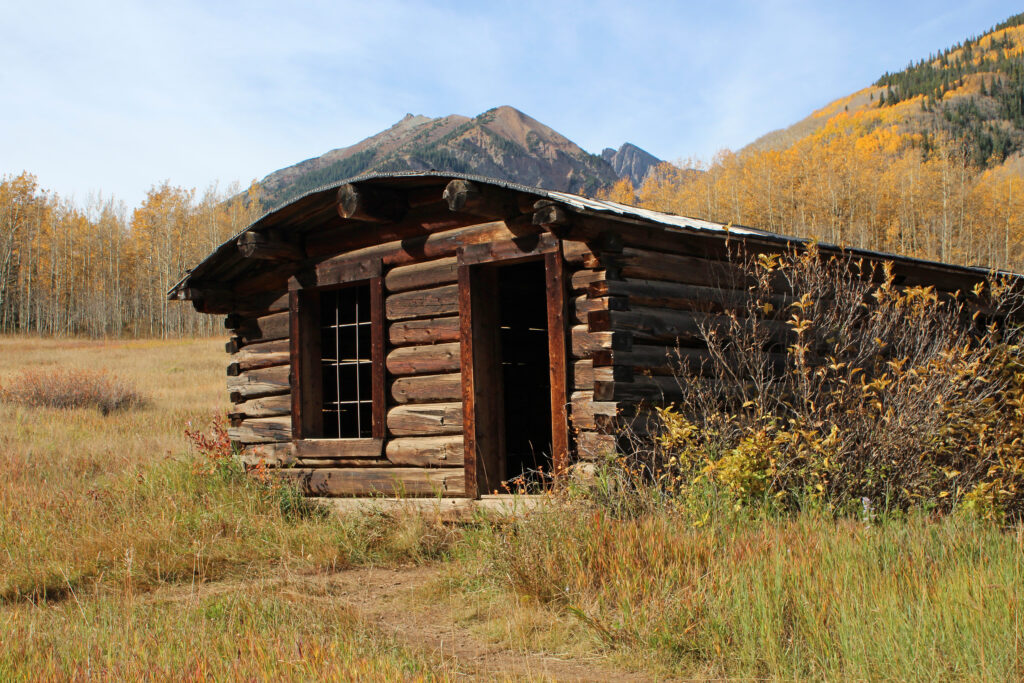
From Boomtown to Ghost Town
Ashcroft was founded in 1880 at the height of Colorado’s silver boom. At its peak, the town boasted more than twenty saloons, several hotels, and a population of over 2,000. The prosperity was short-lived. By the 1890’s the silver veins had run dry, and within a few decades, Ashcroft stood nearly empty.
Today, thanks to preservation efforts by the Aspen Historical Society, about a dozen original structures remain. Miners’ cabins, hotel remnants, and a couple of saloons still stand, each one offering a glimpse into the past and a wealth of photographic possibilities. When the site is staffed, several buildings are open for exploration.
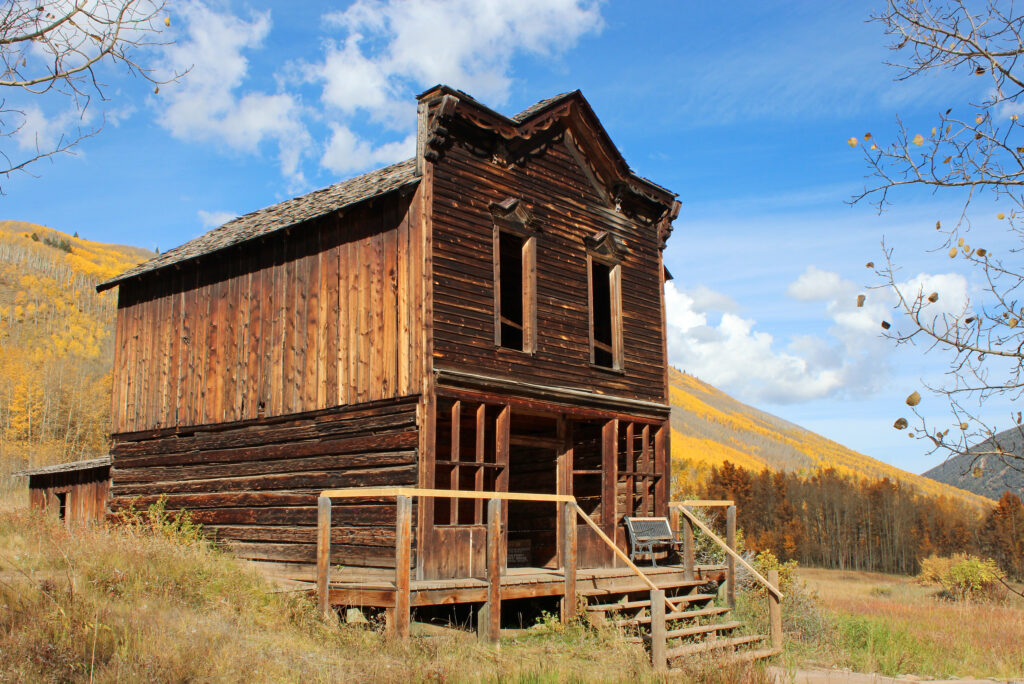
Photographing the Seasons
Ashcroft’s appeal lies as much in its alpine setting as in its history. In winter, snow blankets the valley, transforming the cabins into quiet, spectral silhouettes. With the right light, even a simple snow-dusted cabin can become a compelling subject.
Spring and summer bring a burst of color as wildflowers spread across the valley. The crisp, high-altitude light reveals every detail in the wood walls, while the surrounding Elk Mountains rise dramatically in the background.
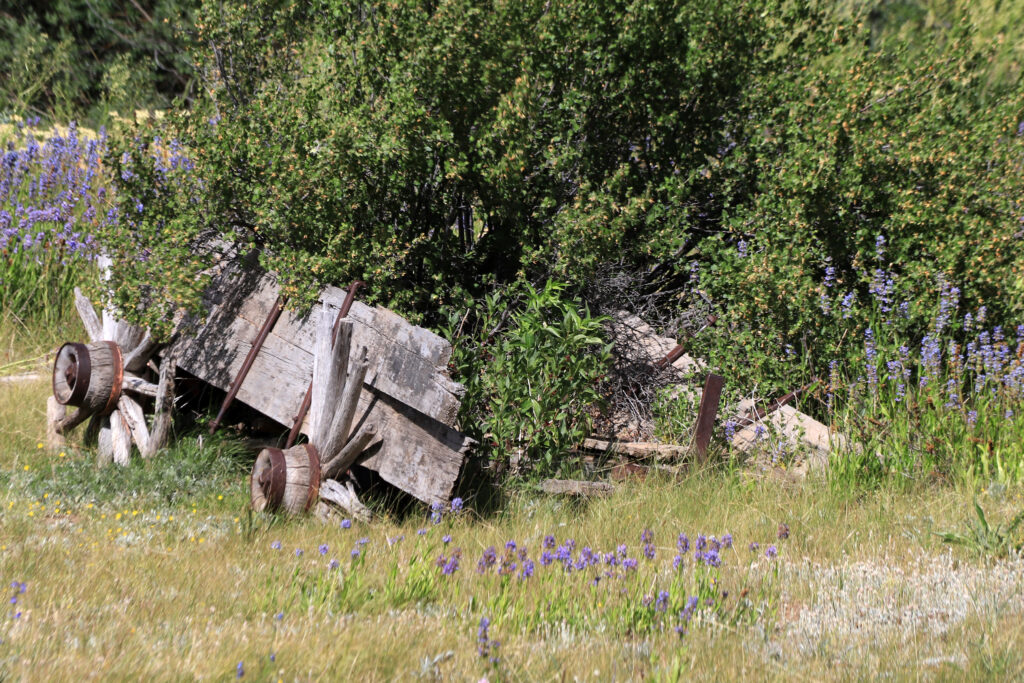
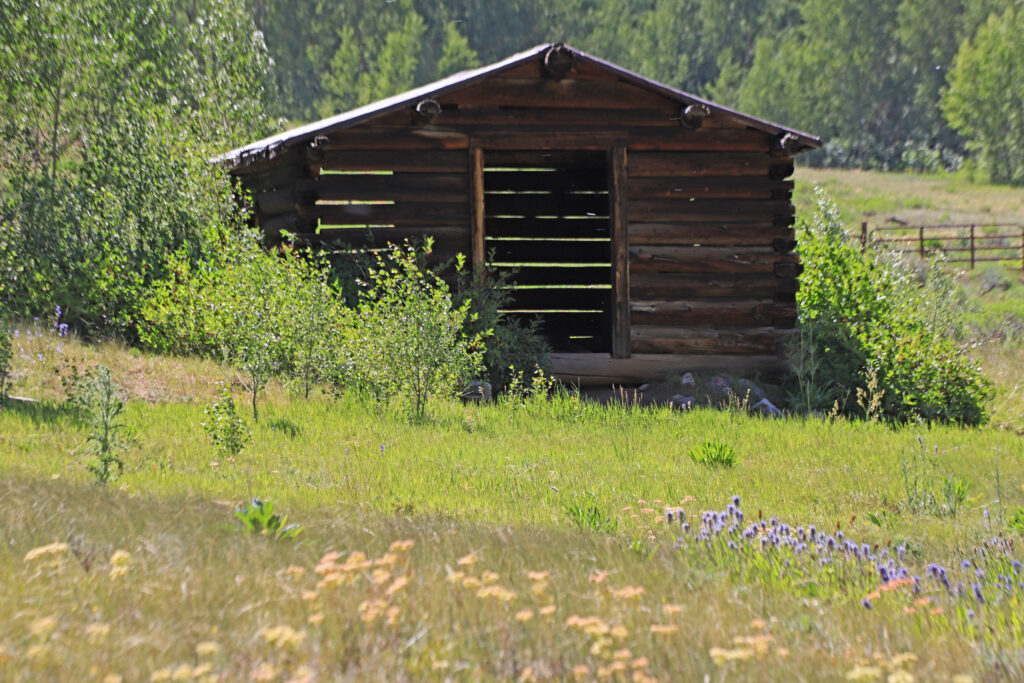
Fall, however, is the most spectacular season to visit. The slopes above the ghost town blaze with golden aspens, their leaves shimmering in the morning sun and casting a warm glow over the town. Late September is typically the best time to visit, when foliage season is at its peak.
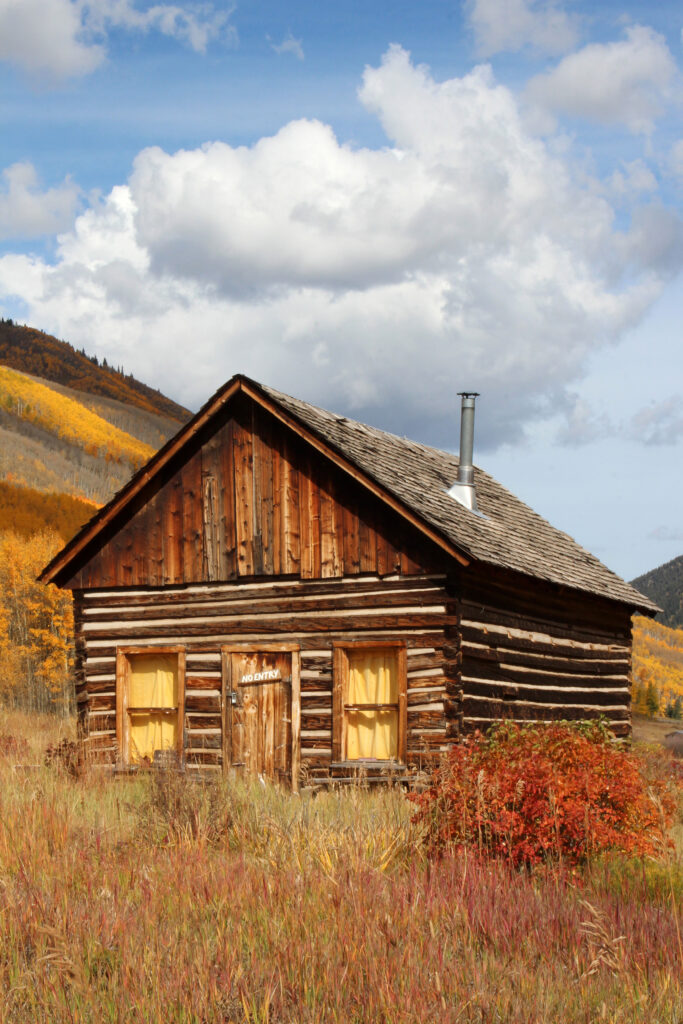
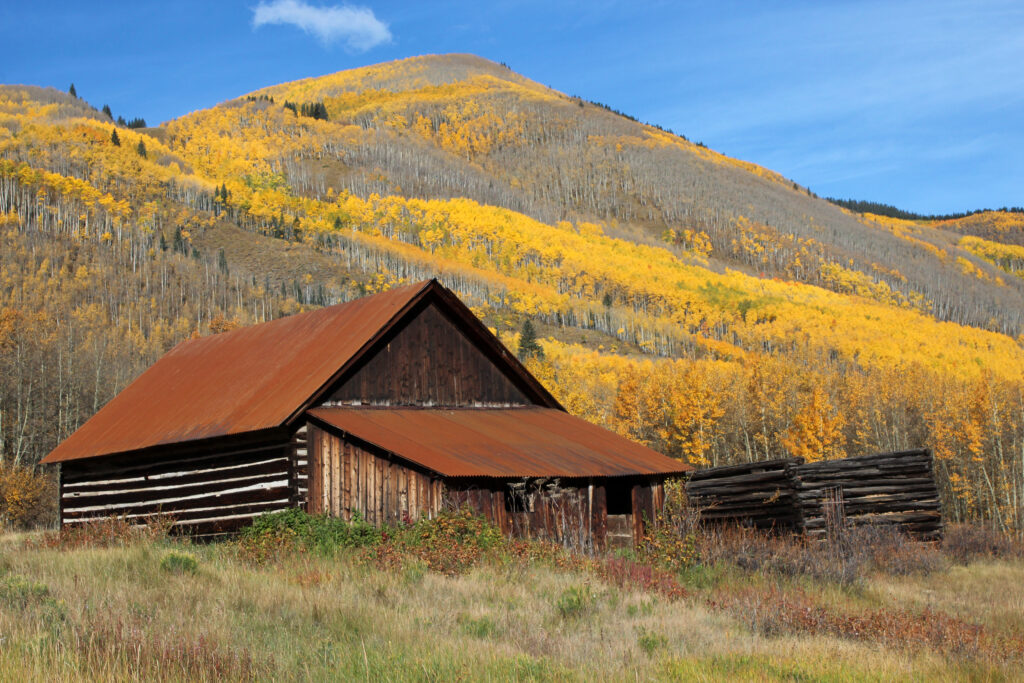
Ashcroft is more than a collection of abandoned cabins — it’s a reminder of Colorado’s restless mining past, set within one of the state’s most beautiful alpine valleys. For travel photographers, it offers the chance to capture not just the weathered structures, but also the dialogue between people and landscape that defines Colorado’s history. Each season tells its own story here, and every visit rewards photographers with something new.
Photography Tips
- Morning light provides soft illumination and reduces harsh shadows on the cabins.
- Look for details like texture, rust, and color.
- Use wide angles to place the cabins in context with the surrounding aspens and mountain peaks.
- Respect the site by staying on paths and avoiding entry into fragile buildings unless permitted.
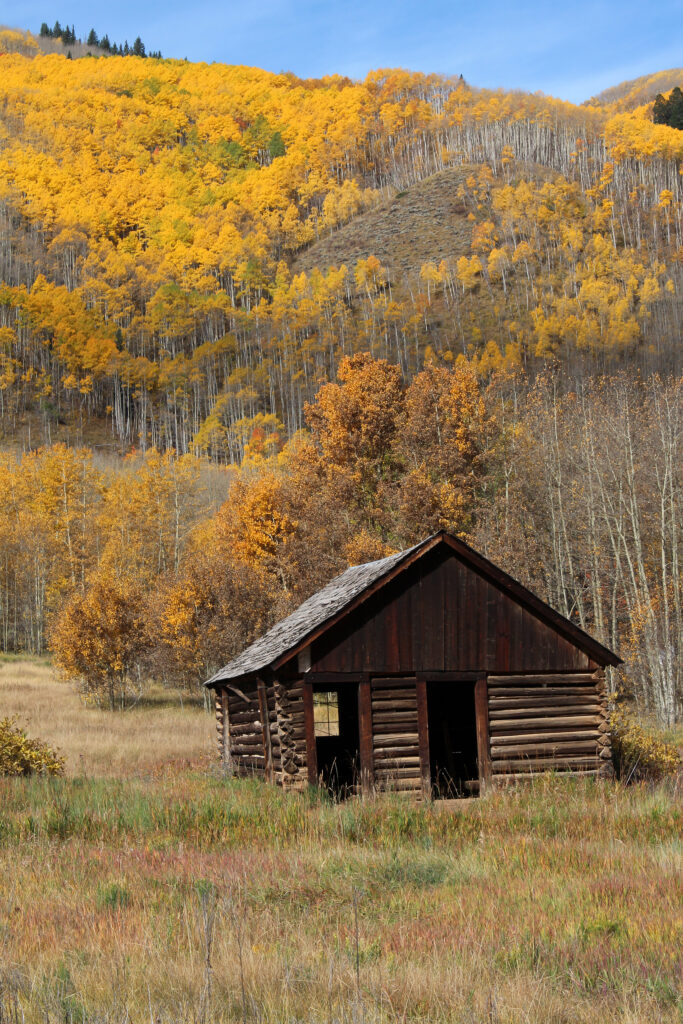
Planning Your Visit
Access: Ashcroft lies about 11 miles south of Aspen along Castle Creek Road. The drive itself is stunning and worth photographing.
Hours and Fees: In summer and fall, the site is staffed and open to visitors (a small fee supports preservation). Winter travel is more challenging, as snow often closes the road to vehicles, but the valley can be reached on skis or snowshoes.
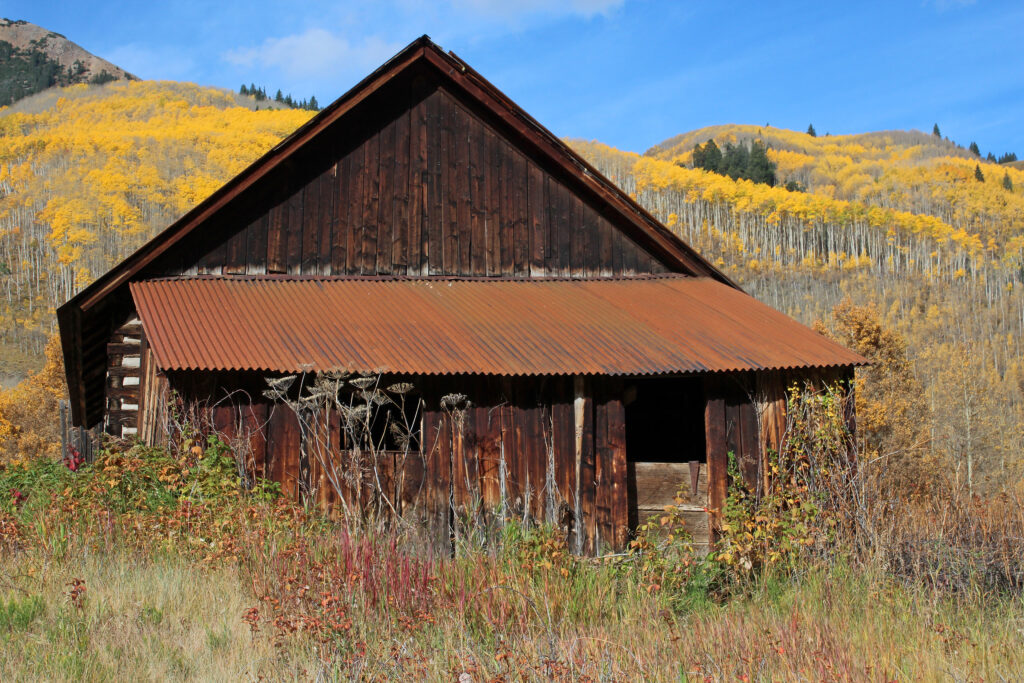
Beyond the Ghost Town
A trip to Ashcroft pairs beautifully with photography stops along Castle Creek Road, where meadows, streams, and soaring peaks offer additional images. In autumn, the drive rivals Colorado’s most iconic leaf-peeping routes.
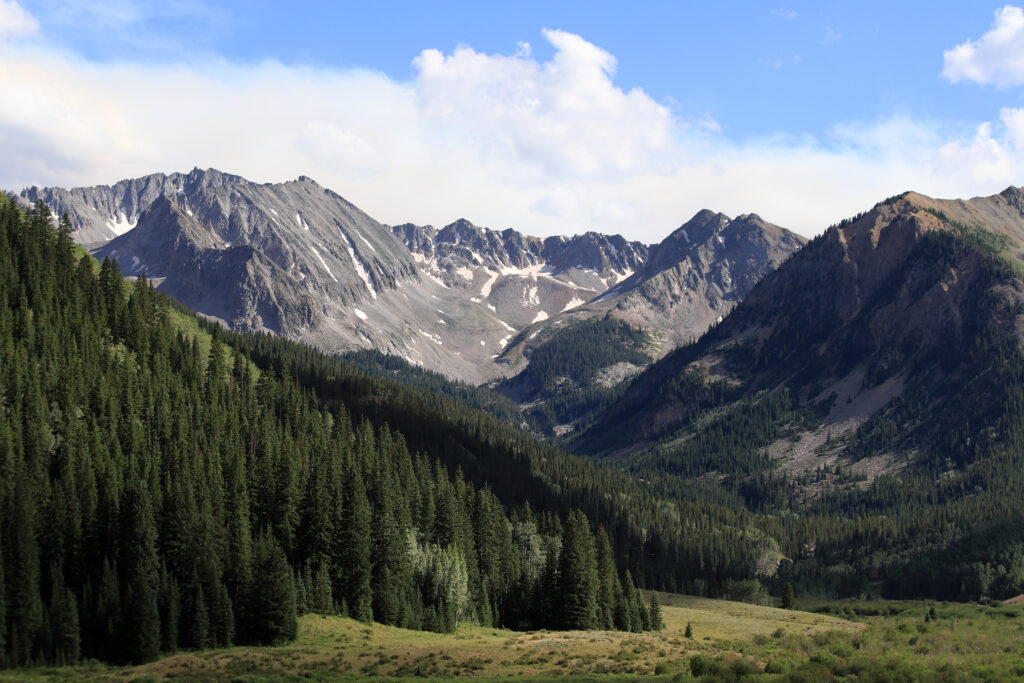
Ashcroft is also close to Maroon Bells, one of the most photographed destinations in the state. With planning, it’s possible to visit Maroon Bells and then make the short drive to Ashcroft later in the day, creating a perfect pairing of Colorado’s historic and natural icons.
